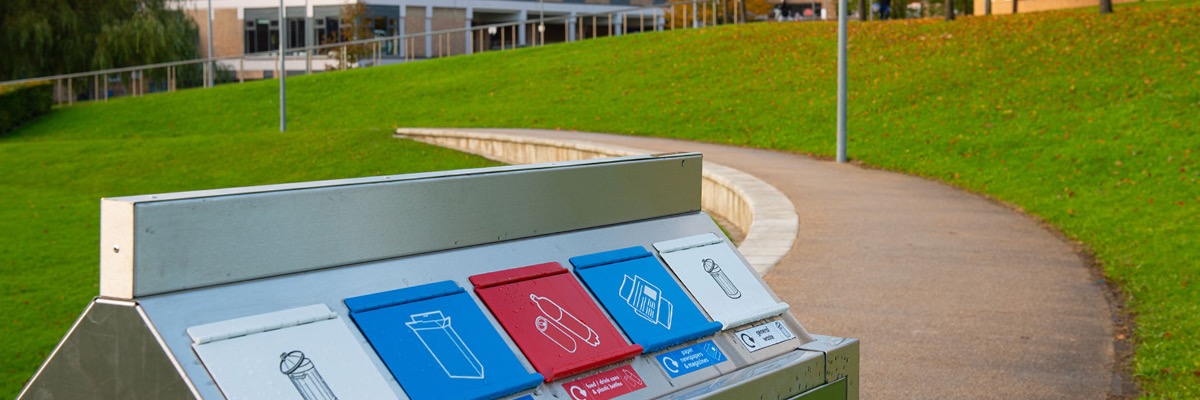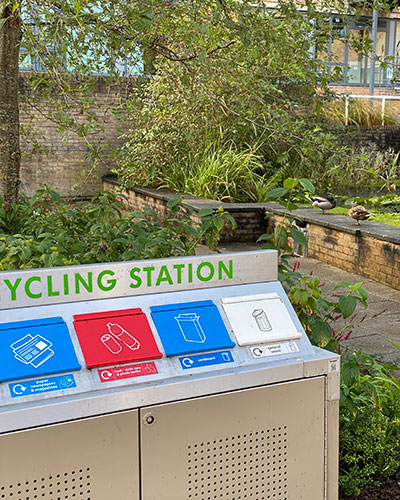Cardboard, paper, newspapers, magazines and books can be recycled via the cardboard and paper recycling bins in each Bin Store on campus, or in the recycling bins that are in office, administration and teaching areas across the campus.
Plastic bottles, cans, empty food pots, milk containers and water bottles can be recycled via the plastic and metal cans recycling bins in each Bin Store on campus, or in the recycling bins that are in office, administration and teaching areas across the campus.
Mixed glass recycling bins are provided at each Bin Store on campus. Please do not dispose of specialist glass items such as laboratory equipment and light bulbs. Collections can be arranged for these items using the Facilities Helpdesk.
Tetra Pak are a major user of paperboard, which required a labour-intensive recycling process to separate recyclable materials from non-recyclable elements of the packaging. Because of this, Tetra Pak cartons are collected separately. At the moment, the University provides dedicated recycling bins to commercial tenants and the hospitality team and we are planning to roll this out to staff and students soon.
Household batteries can be disposed of via any one of the Porters Lodges on campus. There are also a number of battery boxes located around campus that are collected regularly. If you need to dispose of larger, wet cell batteries, you can do this via the Facilities Helpdesk.
Any clean, used clothing in good condition, can be donated to the ReStore Lancaster shop in Alexandra Square to be resold to raise money for charity.
There are numerous clothing banks located around campus. Please use these to donate unwanted clothing and textiles, including shoes, to charity. Where there are separate shoe banks, please use these for footwear only.




